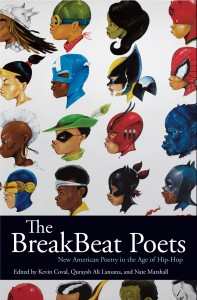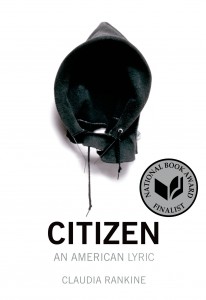The Place of Poetry in the World – Simon Armitage’s Inaugural Lecture
-Reviewed by Dan Holloway–
The Oxford Professor of Poetry seems about as outmoded and irrelevant a title as you could imagine, and the new incumbent, Simon Armitage, happily played on this as he told us “poets like to see themselves as unacknowledged legislators of the world, but to most people they’re simply unacknowledged.” Armitage used his inaugural lecture to give an impassioned plea for the essential role of every generation’s poets to speak to the world in which they find themselves. It was a riposte not just to those who would see poetry as irrelevant (unless, as he said on more than one occasion, referencing the 2009 Professor of Poetry elections and the later goings on at the Poetry Society, they misbehave) but to the previous holder of the office, Geoffrey Hill, who had so spikily started his tenure by announcing that he wouldn’t talk about contemporary poets, because they had nothing of interest to say and were already given too much space in which to say it.
For a moment, as he began with Milton’s ‘Sonnet 23’, it seemed Armitage would tread the same path. But in a subtly powerful intellectual architecture, he used that poem as an example of elegy as the epitome of the poet as “me”. He ended, an hour later, with another 14 line elegy, Aracelis Girmay’s ‘Elegy in Gold’, from the Breakbeat Poets collection, which epitomises, he showed, a new generation of poet as “we”, voices emerging from communities oppressed by the same establishments who birth titles such as Professor of Poetry.
It was a fascinating, and much needed, appeal for, as it were, his own absence, for the foregrounding of other voices, ones not present in the front rows of the audience that were cordoned off for the great and the good of a world that had, Armitage was not afraid to say, tried to dismiss much contemporary poetry as a sub-scene. He was particularly vocal on the subject of contemporary spoken word which had, he was quick to point out, added several noughts to the numbers of those engaging with poetry. Whilst being honest about its genuine excesses – vacuous life-enhancing aphorisms, cheap gags, and seeking instant response – he saved his real excoriation for those who wrote it off, whom he labelled “practitioners of a plastic art.”
He went on to single out Kate Tempest, initially ignored (as I know too well – I spent over a year trying to get the Guardian to cover her, smacked down from all quarters until she won the Ted Hughes Prize after which they were desperate to show they were discovering her) by the media but who was so good the establishment was ultimately unable to ignore her. In one of the few uncomfortable moments (uncomfortable only because it was one of the few times it felt like he’d read something in an article rather than felt it from the words or experience), he described spoken word as the true repository of poetic tradition, pointing to the early post Caxton days in which printing was simply a “means of warehousing and distributing.” But by and large he was free of false notes – and whilst his appeal to intellect and craft was evident not just from words but his carefully structured lecture, he made the key move of insisting that that craft, technique, and intellect had always to be in the service of something more important, of the burning passion of individuals and communities.
And there was a long divertimento on Claudia Rankine. His account of Citizen was somewhat like his account of Tempest – was Citizen poetry? he asked. Ultimately the way the works power exploded from its concision, the way form so perfectly married mood, rendered the question meaningless. That said, there has to be a note of caution. It is great to see Claudia Rankine discussed. Geoffrey Hill never would have done so. The problem is that what we “saw” was still a white guy, A well-meaning white guy making the case for his own absence maybe but a white guy nonetheless. And that’s what the world sees – a white man uttering a poet of colour’s words. Armitage’s lecture is a key part of the slow bending, eroding and ultimately, it is to be hoped, dissolution of a privileged establishment that sees itself as the sole custodian of cultural value. But it remains deeply problematic that when young black potential students look to Oxford, when young poets of colour look to such a position, they still do not see themselves; when they do hear their words there is a disjunct between sight and sound that continues to speak of a relation of privilege and oppression.
Finally, with a swift takedown of Alt Lit and Kenneth Goldsmith he brought us back to hip hop, closing the circle with Milton, demonstrating that poetry remains unchanged in its concerns but demonstrating also, as Hill had failed to do whilst he held the Chair, that its unchanging concern was precisely what made it essential to engage with the modern poetic voice in order for the study of poetry not to make itself irrelevant not just to the modern world but the poetic tradition. Because the concern of poetry is the present moment.






One of the things that marks Armitage out as being ‘problematic’, you say, is because he’s ‘white’ and that this might discourage minorities from applying to Oxford or writing poetry. It’s interesting to me that you’ve decided to flag up race, over, for example, class, gender or religion. Armitage is of course actually ‘progress’ on the class front – he’s a northern kid from a polytechnic who writes accessible, engaging poetry. It’s hard to make the case for him being part of the old British “establishment”. Then again, Seamus Heaney and Paul Muldoon – Irish Catholics – have also held the post recently, hardly part of the establishment either (but that establishment is still monolithic and ‘white’, right?…). Then there’s also the gender problem – no women at all so far – and they’re half the population! I could go on. I don’t remember any Jewish, or Muslim or Indian OPs. Making this about white people and black people is a curiously Americanized way of seeing it.
I’d welcome any of the representatives I’ve just mentioned – I look forward to when more people are represented (women should have next dibs surely, going on the numbers?). But ultimately, I don’t think you can escape from the fact that representation is just one of the roles an OP is performing. When I finished reading this I didn’t have any idea what you, or indeed Armitage, think that poetry is, above and beyond a collection of ‘voices’.
I like what you say about poetry’s concern being the present – but there’s more to the present than identity and I’d question why, when we do talk about identity, we have to be bound by these rather clunky, unrepresentative American categories.
Thank you for engaging in such detail. I can answer your main question very simply, as I hope will become clear when the Podcast of the lecture is finally made available – I spoke about race, and fell into American categories, because that was the issue Armitage tackled head-on by devoting a very large section of his lecture to Rankine – and then went on to talk about Goldsmith and his reading of Michael Brown’s autopsy report.
The slightly more complex, and personal response, is that my initial reaction on walking out and talking to a lot of other people who had been there was what a fantastic step forward this was, and what a great lecture he had given (I still think both of those things). I was then given pause when I scrolled through the response on twitter by a comment about the whiteness of the audience – and a question whether that would have been the case had Wole Soyinka won the election. I found myself caught short at my initial reaction, and asking myself why I had seen this as across the board progress when there were still such obvious ways in which it wasn’t progress at all. I think it does us all, perhaps especially when we like to think of ourselves as rigorous monitors of our own privilege, a great deal of good to be shocked sometimes into the realisation that the process is never complete and that it must start with us.
I absolutely agree the next Professor should be a woman. I voted for A E Stallings this time, and was proud to be part of her campaign. I would love to see Claudia Rankine stand next time around.
I hope that answers you – of course my picture isn’t complete, and of course this is a massive step forward, but I was already nudging at acceptable word counts and I felt I owed it to a subject such as poetry to at least attempt a little concision, so I prioritised for the reasons spelled out here.
Finally, in terms of the present and identity – maybe, but I have a personal blindspot on the issue – I’ve never managed to write contemporary fiction that’s not centred on identity, and it spills over into non-fiction. It will be a long time before postmodernism’s attempts to pull down the metanarrative hooks on which we previously attempted to hang ourselves is worked through, and in the meanwhile, I think finding the categories with which to describe ourselves in a world in which we are constantly told there are no categories is the artist’s single most important task – and I think identity politics and intersectional thinking are at the forefront of that task. Of course ymmv.
And thank you for your reply! I see what you mean about Rankine; I should have picked up on that. I still think it raises questions about why the agenda here is so often dominated by the U.S. and whether that should concern anyone. My own position on that is – not really, there are plenty of good things to learn from America when it comes to poetry. But, equally, I’d like to see more self-confidence both here and elsewhere and I think it’s slightly odd, especially within the context of representation and identity, to suppose that someone like Rankine is necessarily going to speak to a large amount of people in Britain, minorities or otherwise, better than a minority British, post-colonial or anywhere else poet . It does smack of an excess of American influence. I do think diversity too often means ‘the US’, when there’s a whole world out there (of course, the language has a lot to do with it). It will be interesting to see if the U.S. dominates the Forward Prize in the future, for instance.
Also, although I sympathize with your personal response, I thought – and now think more, given that you say you felt very positive about the lecture at the time – that it’s strange to use language like ‘deeply problematic’, as if there is something wrong, or nasty about Armitage being on that stage, when it sounds like what you really mean is that it’s ‘a shame’. But I suppose that’s an instance of our mileages varying.
On that note, it’s been very interesting to see that in the two years since it was opened up to US authors, there has been absolutely no sign of US novelists dominating Booker